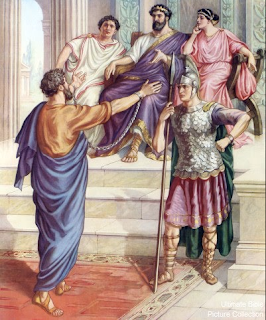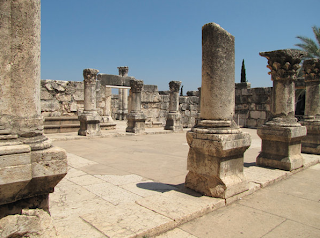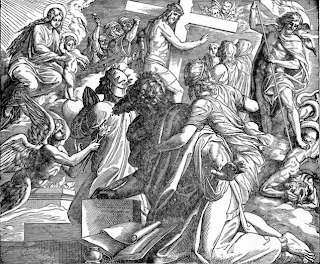TO CHEW ON: "Lord, who may abide in Your tabernacle?
Though none of us can ever earn God's love and favour with our goodness—and we know that—striving to please Him has its place. Perhaps striving is the wrong word, for when we become His children, our relationship takes on a Father-child dimension, where wanting His approval is as natural as the longing to hear the "well done" of our earthly dads.
In Psalm 15 David asks, "Lord, who may abide...who may dwell with You" and then lists 11 attitudes and actions God's kids cultivate to live in sweet harmony with their heavenly Father.
God's child:
1. "Walks uprightly" ("those whose walk is blameless" - NIV). Does this mean we have to be perfect? I don't think so. What it does mean, I believe, is that our consciences are clear. We don't habitually commit or cover over known sin.
2. "Works righteousness" ("works rightness and justice" - Amp).
3. "Speaks truth in his heart" ("speaks and thinks the truth in his heart" - Amp; "speaking the truth from sincere hearts" - NLT).
4. "Does not backbite with his tongue ("does not slander" - Amp; "refuses to gossip" - NLT).
5."Nor does evil to his neighbour" ("Nor does evil to his friend" - AMP).
6. "Nor does he take up a reproach against his friend" ("casts no slur on others" - NIV 2010).
7. "In whose eyes a vile person is despised" ("those who despise flagrant sinners" - NLT).
8. "He honours those who fear the Lord" ("honours the faithful followers of the Lord" - NLT).
In regard to 7 & 8, I can't help but think how we, even us followers of Jesus, are influenced by the star worship of our society. Oh to rather be starstruck with the people who impress God!
9. "He swears to his own hurt and does not change" ("keep their promises even when it hurts" NLT).
10. "Does not put out his money at usury" ("lends money without charging interest" NLT). Footnote: "Usury - The Levitcal law prohibited demanding interest on loans to the poor (Leviticus 25:36)" New Spirit-Filled Life Bible, p. 695.
11. "Nor does he take a bribe against the innocent" ("who cannot be bribed to lie about the innocent" - NLT).
Such a list speaks for itself. Note how it impacts every part of life from our thoughts to how we do business. Depending on our circumstances, we'll notice different items on it. What jumps out at you today?
PRAYER: Dear God, please help grow in me the qualities of integrity, authenticity, fear of You, and compassion. I want to be a woman of godly character. Amen.
MORE: "Maker's Handbook"
Another reason we adopt the principles and standards of the Bible to direct our living is because by doing so, we live life the way God designed it to work best. Theologian J. I. Packer says:
"The Christian accepts the moral standards which are set forth in the Bible, acknowledging them as standing in a ‘maker’s handbook’ relation to his own nature and as circumscribing the only way of life that can lead him to ultimate fulfilment and felicity" - J. I. Packer in "Conscience, Choice and Character"
Scripture quotations marked NIV are taken from THE HOLY BIBLE, NEW INTERNATIONAL VERSION®, NIV® Copyright © 1973, 1978, 1984, 2011 by Biblica, Inc.® Used by permission. All rights reserved worldwide.

















